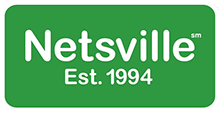UX might not ring a bell for a lot of people but it is starting to become better known, at least in the technology field of study. UX stands for User Experience. By definition, User Experience is the process of enhancing user satisfaction by improving usability, ease of use, and enjoyment provided in the interaction between the user and the product.
The UX main focus is whether the interactions, process, flow, and overall experience of the application works well for the end user. Ultimately, the goal is to figure out if the application is intuitive, simple, and, most importantly, if it meet the user’s goals.
So what exactly does a UX developer do? Basically a UX developer is somewhere in between that of a traditional developer and a designer. They have an eye for design but also have the developmental experience and expertise. Rather than building full production level applications, UX developers build prototypes and proofs of concepts.
These prototypes provide a more valuable and holistic experience. The benefit of a UX developer designing these prototypes is that the code used to skin the prototype and build out the animations and interactions can be handed over to the development team for use in the production of the application.
The UX developer is more new age compared to a traditional developer. The traditional developer, of course, is concerned with whether or not the application works and if it executes all of the items listed in the functional specifications. Basically, they focus on the tasks rather than the goals.
The traditional developer is more of a computer science degree with heavy duty backend language. They are familiar with the best practices and design patterns out there. Whereas the UX developer is more of a designer realm studying a variety of front end development technologies. They build out the interactions to see if the methods they’ve come up with work from an experience perspective. Mainly, does it flow correctly? Is it intuitive? Is it simple to use? Is it enjoyable from a user perspective?
These are just some of the questions a UX developer tries to answer when creating the prototype. The prototypes are used to build and test various interactions between interactions and designs.
This is a huge benefit to traditional developers because it frees up their time to focus on what they are best at such as making sure the application works and if it is scalable and bulletproof. With this focus, they don’t waste time on trivial matters such as an object fading out when it was supposed to slide.
Having a UX designer can be very beneficial to have on staff for a technology company. It can make the flow of a project faster and easier for all team members involved. In the end, it can provide an overall better, more user friendly final product.
Based in Rochester, New York, Netsville is an Internet Property Management company specializing in managing the Digital Marketing, Technical, and Business Solutions for our customers since 1994. For more information, please click here.





